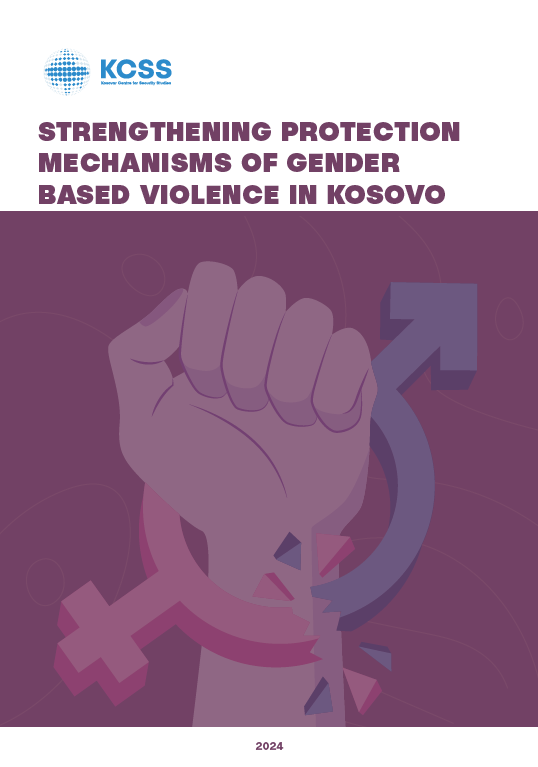5/07/2024

Kosovar Centre for Security Studies
Kosovar Centre for Security Studies
Adelina Hasani, Vesa Kroçi
Femicide and insufficiently addressed gender-based violence represent major security concerns in Kosovo, yet they have not been adequately prioritized as immediate issues by the full spectrum of state mechanisms. Activists in Kosovo have consistently demanded that gender-based violence be declared and treated a national emergency, a plea that state institutions have not taken into consideration.
Within just five days in April 2024, two women in Kosovo were victims of femicide, murdered by their partners. Gender-based violence and femicide pose significant security threats to women. From January to March 2024, 698 cases of gender-based violence were reported to the police, compared to 2,638 cases reported throughout 2023. Despite the high number of reported cases, many cases remain unreported due to the complex socio-economic challenges’ women face across different regions of Kosovo. There are several reasons highlighting the inadequacies in addressing the prevention of gender-based violence. Recent research conducted by the Kosovo Centre for Security Studies elaborates on several problems concerning gender-based violence in Kosovo.
There are some of them:
Women’s trust in security and justice institutions is critical for reporting gender-based violence. However, the leniency of the judicial system towards perpetrators and the prolonged duration of domestic violence cases discourage women from seeking justice. There is a lack of sensitivity and expertise among law enforcement authorities, especially in rural areas, to handle genderbased violence cases effectively.
The absence of property ownership among women is a significant barrier to their economic independence and security. Despite legal provisions for equal property rights, women often relinquish their inheritance, leaving them with limited resources and options when facing violence. This lack of financial autonomy leaves women in a troubling situation where they may feel compelled to return to their abusers. Many women withdraw their complaints of gender-based violence due to third-party interventions, often under family pressure. There is a tendency among family members and officials to blame women for reporting abuse, further discouraging them from seeking help.
Women reporting domestic violence often endure double discrimination from institutions, society, and their families. There is limited information about rights and available support services for victims of gender based violence in Kosovo. The lack of awareness intensifies feelings of vulnerability and exacerbates the sense of helplessness when seeking solutions. There is also insufficient investment in support services for victims and consequences for perpetrators. Insufficient and unstable funding for shelters poses a significant challenge to supporting survivors of domestic violence. Without adequate resources, shelters struggle to maintain essential services and meet the increasing demand for their services.
There is also a lack of sustainable institutional support for victims, leading some to return to their abusers. Addressing gender-based violence and femicide requires a holistic approach from all institutions involved in handling cases arising from diverse circumstances. In this analysis, we aim to examine the shortcomings in implementing protection orders for victims and the physical protection of shelters and the Centre for Social Work (CSW) from perpetrators.